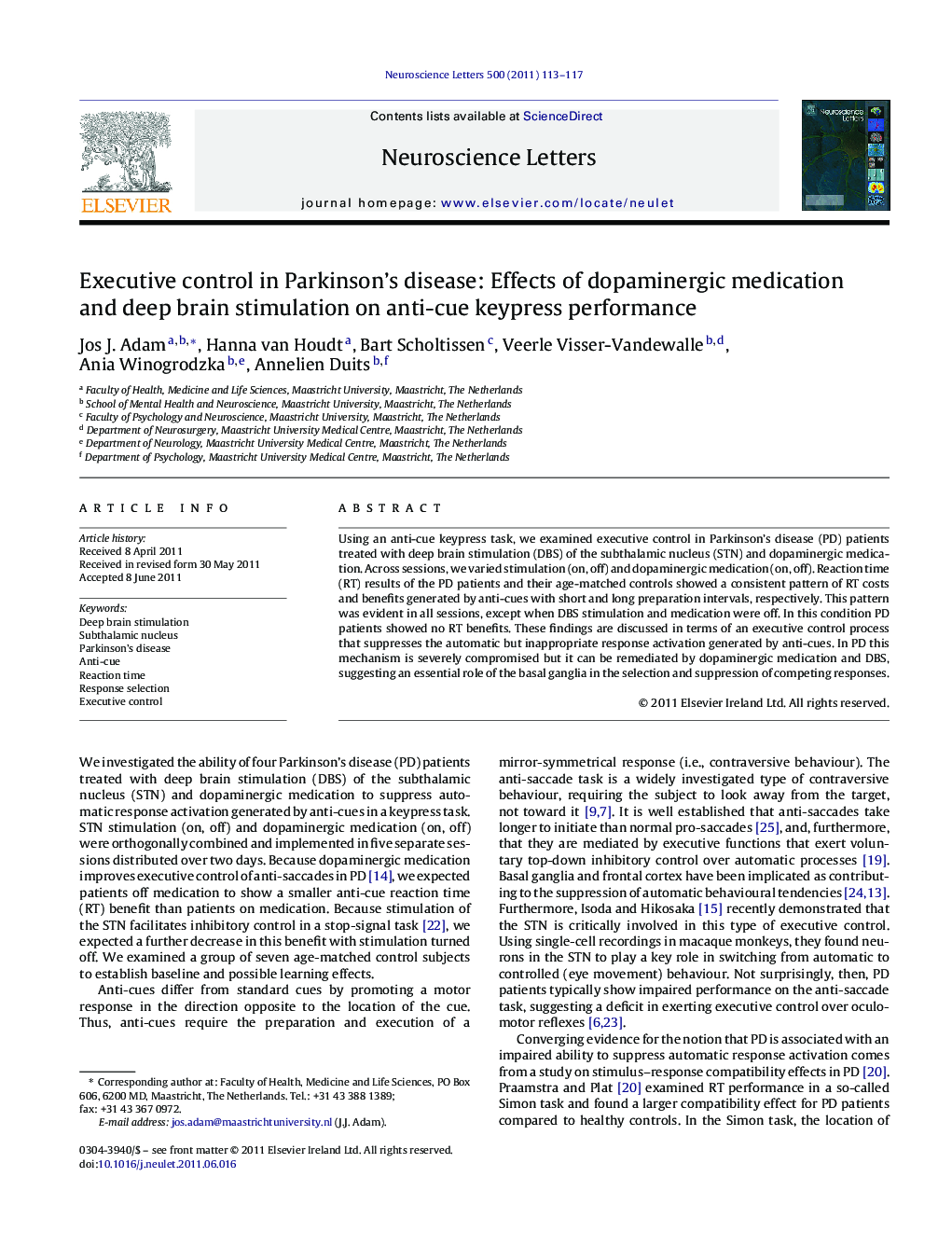| Article ID | Journal | Published Year | Pages | File Type |
|---|---|---|---|---|
| 4345119 | Neuroscience Letters | 2011 | 5 Pages |
Using an anti-cue keypress task, we examined executive control in Parkinson's disease (PD) patients treated with deep brain stimulation (DBS) of the subthalamic nucleus (STN) and dopaminergic medication. Across sessions, we varied stimulation (on, off) and dopaminergic medication (on, off). Reaction time (RT) results of the PD patients and their age-matched controls showed a consistent pattern of RT costs and benefits generated by anti-cues with short and long preparation intervals, respectively. This pattern was evident in all sessions, except when DBS stimulation and medication were off. In this condition PD patients showed no RT benefits. These findings are discussed in terms of an executive control process that suppresses the automatic but inappropriate response activation generated by anti-cues. In PD this mechanism is severely compromised but it can be remediated by dopaminergic medication and DBS, suggesting an essential role of the basal ganglia in the selection and suppression of competing responses.
► We studied executive control in Parkinson's disease with an anti-cue task. ► We varied deep brain stimulation and dopaminergic medication. ► Deep brain stimulation improved executive function in Parkinson's disease. ► Dopaminerge medication improved executive function in Parkinson's disease.
